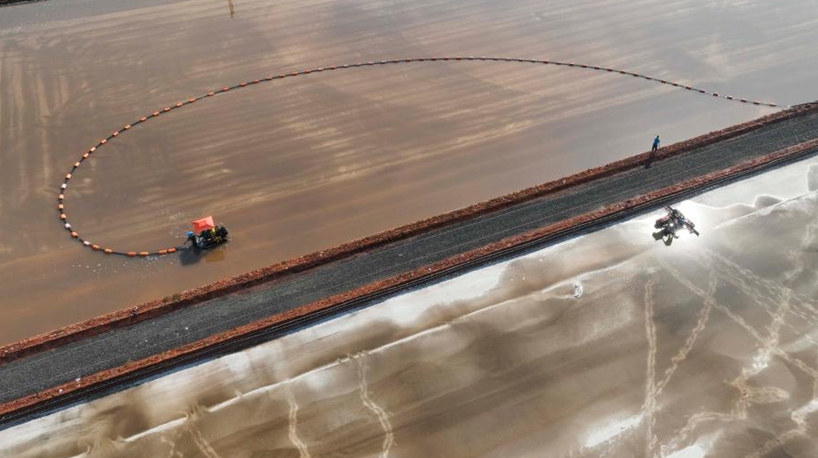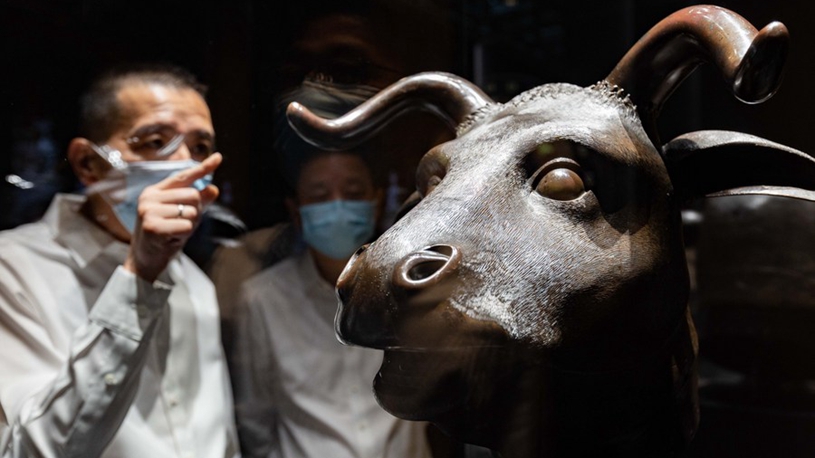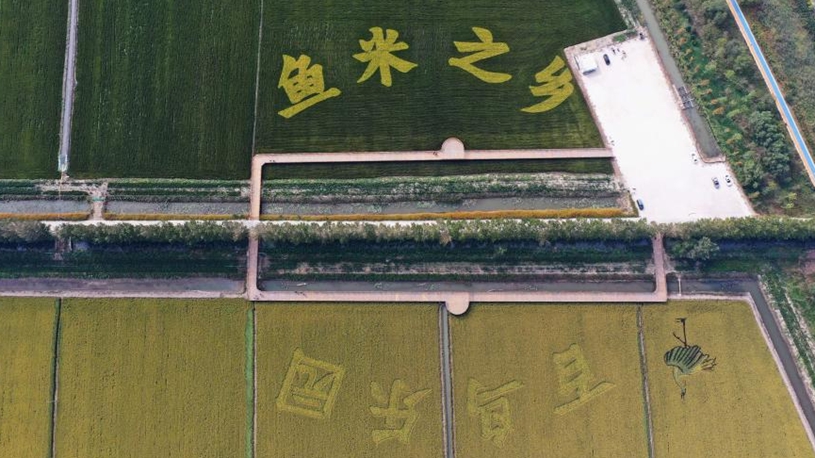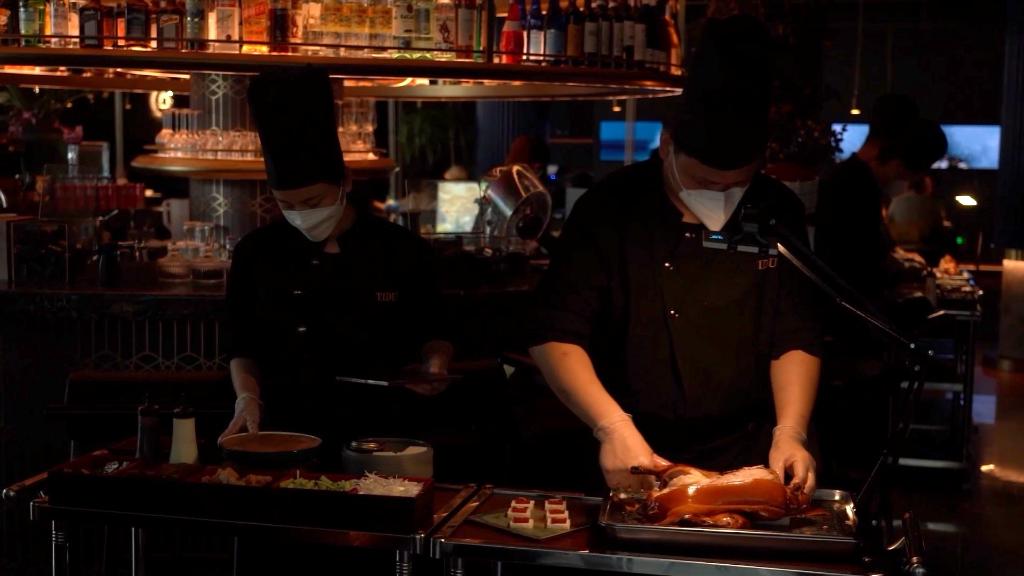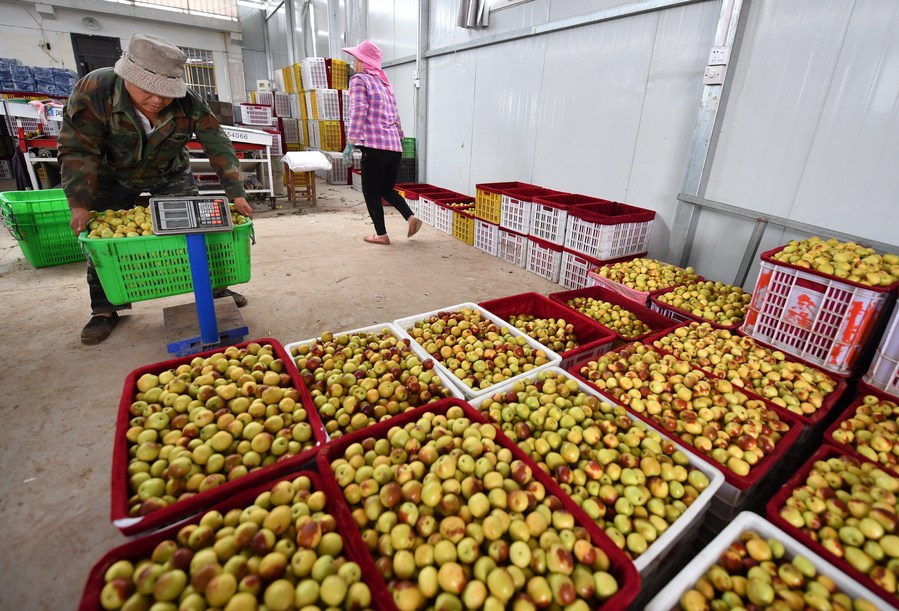
A staff member weighs a basket of harvested winter jujubes at a specialized farmer cooperative in Xiaopo Village of Dali County, northwest China's Shaanxi Province, Sept. 22, 2020. (Xinhua/Zhang Bowen)
XI'AN, Oct. 2 (Xinhua) -- Zhu Hongtao, 53, a villager from Dali County in northwest China's Shaanxi Province, harvested his 2 hectares of winter jujubes in early September.
Having been engaged in jujube planting for 26 years, he witnessed its rapid development from the get-go.
Life for local residents here used to be filled with bitter tears. Located near the midstream of the Yellow River, China's second-longest river, the county suffered from soil salinization and thus large swathes of land were left uncultivated.
"In the 1990s, villagers earned an annual average of less than 500 yuan (about 69 U.S. dollars)," recalled Xue Anquan, Party chief of Xiaopo Village, about 7 km away from the Yellow River. Many locals left, looking for work elsewhere.
Xue and other village cadres visited Shandong, Henan and other provinces to learn about the growth possibilities of saline soil. They introduced various plants such as fig and poplar trees, but the plantation failed. Only jujube trees brought from Shanxi Province across the river survived.
However, the fleeting sense of hope was soon overwhelmed by other problems. The village was devoid of irrigation source as there was only alkali water under the ground.
"We borrowed money to build an irrigation canal from 3 km away in 2001. Our efforts paid off as we got good harvests the following years," said Xue.
To bring about more benefits, they grafted winter jujubes, which can be sold at a higher price.
Different kinds of shelters have been built over the past years to protect the trees from cold snaps, hail and heavy rain.
"Under natural conditions, winter jujubes reach peak ripeness in October. But now, they become ripe much earlier and thus sell at a higher price," Zhu said.
Moreover, the county established an institute dedicated to research on jujube planting in 2020. "By improving soil and breeding new species, the yield increases and farmers enjoy higher output value," said Lei Mengshi, an official with the agriculture and rural affairs bureau of the county.
There are 28,000 hectares of winter jujubes with an annual production of 500,000 tonnes in the county. Nearly one third of the county population, which stands at about 590,000, have been employed in jujube growing, processing, transporting and selling.
"Per capita income in the village reaches 25,000 yuan, 50 times that in the 1990s," said Xue, who added that more technologies will be employed to increase the added value of the fruit. ■


